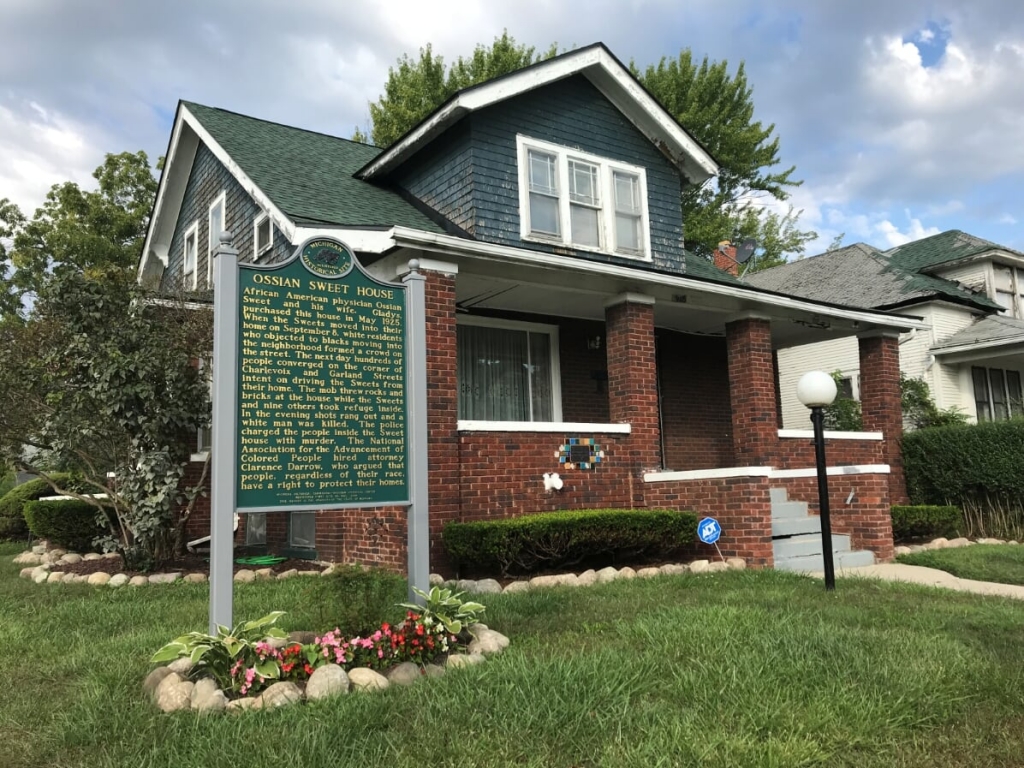They say that History majors don’t get jobs. Despite the stats showing that we’re pretty good at making money and play a pretty major role in how we choose to see the world through academia, teaching and important research, the stigma is still there. Those perceptions weighed on me as I approached graduation from Washington and Lee University, afraid that my coursework was moot compared to what the real world needed me to prepare for.

Ossian Sweet’s home, a reminder of how racism has defined the City’s history
My six months in Detroit have reminded me that to understand a place is to understand its history. Driving down Grand Boulevard, I see the evidence of artistic excellence that defined Motown music. When taking in a show at El Club, I am surrounded by potent reminders of Detroit’s significance for Mexican Americans who pursued jobs in the region in its 20th century heyday. At this juncture, the incremental support I have provided to the Detroit Public Schools Community District and City of Detroit Office of Civil Rights, Inclusion and Opportunity have put my liberal arts skills to the test by investing in two deeply historic institutions in the city.

Hitsville USA, aka the Motown Museum, a reminder of Black excellence in a city built by it
The idea that History majors don’t get jobs implies that a job is merely a commitment to work. Fully appreciating the scope of the communities, workplaces and institutions we are part of can fuel a more critical understanding of the challenges those spaces face. History, at its core, is the study of individuals, and critically understanding our individual commitments to ourselves and to each other is important to any job you may take on. Of course, you don’t have to be a History major to appreciate Detroit’s powerful and complicated story, but Challenge Detroit has reminded me just how important it is to engage with that history at a deep, visceral level when living, working and playing in this city.
